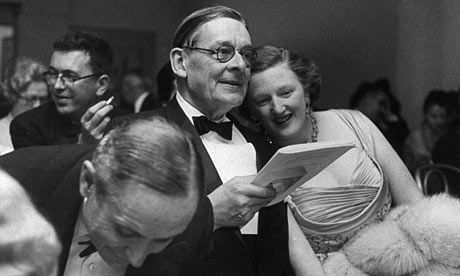 For Christmas, I embroidered some pocket squares for Wystan. I downloaded a font from the internet, installed it on my computer all by myself, and then made up a way to embroider. I got more daring with the colors in the last three.
For Christmas, I embroidered some pocket squares for Wystan. I downloaded a font from the internet, installed it on my computer all by myself, and then made up a way to embroider. I got more daring with the colors in the last three.
 I hadn't been back to Grove City since my graduation more than four years ago. Also, fortunately, I hadn't thought of our [terrible, terrible] alma mater even once. Now you, dear reader, must think about it with me:
I hadn't been back to Grove City since my graduation more than four years ago. Also, fortunately, I hadn't thought of our [terrible, terrible] alma mater even once. Now you, dear reader, must think about it with me:






 Also, the Biglerville, PA Canners. I guess Canner is supposed to refer to the apples that are good enough to be canned, as opposed to the ones that are used for juice. I've heard that they have a tough time finding someone to wear the mascot costume at sporting events.
Also, the Biglerville, PA Canners. I guess Canner is supposed to refer to the apples that are good enough to be canned, as opposed to the ones that are used for juice. I've heard that they have a tough time finding someone to wear the mascot costume at sporting events.






The 'materialism' that we often associate with Christmas – the stores, the tinsel, the glitter, the hassle – is after all the other side of what it means to be in a body and in time. We Christians do not in the least object to giving gifts, to decorations, to understandi ng what it is all about. We invented such ideas. Like anything else, there can be an excess, but in the very core of the idea of festivity, as Josef Pieper pointed, there is this sense of abundance and excess, of overflowing and more than we can imagine. The paradigm of this understanding is seen in its fullest glory at the Nativity, at Christmas. Gloria in excelsis Deo."
ng what it is all about. We invented such ideas. Like anything else, there can be an excess, but in the very core of the idea of festivity, as Josef Pieper pointed, there is this sense of abundance and excess, of overflowing and more than we can imagine. The paradigm of this understanding is seen in its fullest glory at the Nativity, at Christmas. Gloria in excelsis Deo."




 "We may now return to the question of how far it is possible to enjoy Shelley's poetry without approving the use to which he put it; that is, without sharing his views and sympathies. Dante, of course, was about as thoroughgoing didacticist as one could find; and I have maintained elsewhere, and still maintain, that it is not essential to share Dante's beliefs in order to enjoy his poetry. If in this instance I may appear to be extending the tolerance of a biased mind, the example of Lucretius will do as well: one may share the essential beliefs of Dante and yet enjoy Lucretius to the full. Why then should this general indemnity not extend to Wordsworth and to Shelley?
"We may now return to the question of how far it is possible to enjoy Shelley's poetry without approving the use to which he put it; that is, without sharing his views and sympathies. Dante, of course, was about as thoroughgoing didacticist as one could find; and I have maintained elsewhere, and still maintain, that it is not essential to share Dante's beliefs in order to enjoy his poetry. If in this instance I may appear to be extending the tolerance of a biased mind, the example of Lucretius will do as well: one may share the essential beliefs of Dante and yet enjoy Lucretius to the full. Why then should this general indemnity not extend to Wordsworth and to Shelley? ll-developed mind, set up an almost complete check. I observe in passing that we may distinguish, but without precision, between poets who employ their verbal, rhythmic and imaginative gift in the service of ideas which they hold passionately, and poets who employ the ideas which they hold with more or less settled conviction as material for a poem; poets may vary indefinitely between these two hypothetical extremes, and at what point we may place any particular poet must remain incapable of exact calculation. And I am inclined to think that the reason why I was intoxicated by Shelley's poetry at the age of fifteen, and now find it almost unreadable, is not so much that at that age I accepted his ideas, and have since come to reject them, as that at that age 'the question of belief or disbelief', as Mr. Richards pits it, did not arise. It is not so much that thirty years ago I was able to read Shelley under an illusion which experience has dissipated, as that because the question of belief or disbelief did not arise I was in a much better position to enjoy the poetry. I can only regret that Shelley did not live to put his poetic gifts, which were certainly of the first order, at the service of more tenable beliefs--which need not have been, for my purposes, beliefs more acceptable to me."
ll-developed mind, set up an almost complete check. I observe in passing that we may distinguish, but without precision, between poets who employ their verbal, rhythmic and imaginative gift in the service of ideas which they hold passionately, and poets who employ the ideas which they hold with more or less settled conviction as material for a poem; poets may vary indefinitely between these two hypothetical extremes, and at what point we may place any particular poet must remain incapable of exact calculation. And I am inclined to think that the reason why I was intoxicated by Shelley's poetry at the age of fifteen, and now find it almost unreadable, is not so much that at that age I accepted his ideas, and have since come to reject them, as that at that age 'the question of belief or disbelief', as Mr. Richards pits it, did not arise. It is not so much that thirty years ago I was able to read Shelley under an illusion which experience has dissipated, as that because the question of belief or disbelief did not arise I was in a much better position to enjoy the poetry. I can only regret that Shelley did not live to put his poetic gifts, which were certainly of the first order, at the service of more tenable beliefs--which need not have been, for my purposes, beliefs more acceptable to me."

